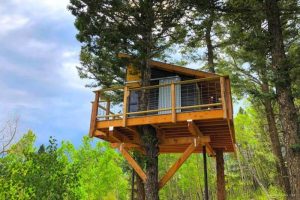Hotel review mistakes to avoid are surprisingly common, often hindering the helpfulness of online reviews for fellow travelers. From overly aggressive negativity to the inclusion of irrelevant details, many well-intentioned reviewers inadvertently undermine their own contributions. Understanding these pitfalls and learning to craft constructive, informative reviews is crucial for building a trustworthy online reputation for both hotels and reviewers alike.
This guide provides practical strategies for avoiding common mistakes and creating impactful, helpful feedback.
This exploration delves into the nuances of writing effective hotel reviews, emphasizing the balance between expressing personal experiences and offering valuable insights for potential guests. We’ll examine how to constructively criticize, manage expectations, prioritize relevant information, and avoid subjective biases that cloud the overall message. By understanding and implementing these strategies, you can ensure your reviews are both impactful and beneficial to the broader travel community.
Reviewing Related Travel Experiences
Your hotel review shouldn’t exist in a vacuum. A truly helpful review considers the entire travel experience, enriching the perspective for fellow travelers. By incorporating details beyond the hotel itself, you paint a more complete picture and provide valuable context for readers planning similar trips.Integrating experiences beyond the hotel stay significantly enhances the review’s usefulness. Readers are not just interested in the hotel’s amenities; they want to understand the overall trip context.
This includes factors like accessibility to attractions, transportation options, and the overall cost-effectiveness of the journey. Connecting the hotel experience to the broader travel narrative makes your review much more engaging and informative.
Incorporating Experiences Beyond the Hotel Stay
Examples of how to weave in related travel experiences include detailing the proximity of the hotel to key attractions, describing the ease or difficulty of accessing those attractions via public transport or personal vehicle, or commenting on the cost and efficiency of local transportation options. For example, mentioning that the hotel is a short walk from a bustling market, a convenient bus stop, or a scenic walking trail greatly enhances the reader’s understanding of the location’s appeal.
Alternatively, noting the challenges of navigating traffic to reach nearby points of interest provides equally valuable insight. A review mentioning the hotel’s free shuttle to a nearby airport or train station is particularly helpful.
Integrating Diverse Travel Modes and Accommodations
Connecting your hotel stay to other aspects of your journey, such as flight deals, train travel, cruises, road trips, budget accommodations, vacation rentals, RV travel, unique stays, houseboats, and yachts, adds depth and practicality to your review. For instance, if you stayed in a budget-friendly hotel to save money for a luxurious cruise, mentioning this trade-off helps readers understand your choices and prioritize their own travel budget accordingly.
Similarly, if you used a rental car for a scenic road trip and then stayed in a charming boutique hotel in a small town, describing this journey adds context and interest to the hotel review. A review that mentions a successful use of a budget airline for the flight, followed by a stay in a reasonably priced hotel near public transport adds value by showing a balanced travel approach.
Creating a Comprehensive Travel Narrative, Hotel review mistakes to avoid
A structured approach is key to creating a comprehensive travel narrative. Begin by outlining the overall trip, highlighting the purpose and goals. Then, weave in details about each segment, including transportation, accommodation, and activities. For example, start by describing the flight experience (smooth, delayed, etc.), then the transfer to the hotel, the hotel experience itself, and finally, activities and excursions undertaken during the stay.
Remember to connect these elements, showing how they contribute to the overall success or challenges of the trip. This holistic approach creates a cohesive and informative review.
Connecting Hotel Experience to Broader Travel Experience
A strong review demonstrates the interconnectedness of all trip elements. For example, if the hotel’s location proved crucial for easy access to key attractions, explicitly state this. If the hotel’s amenities (like a pool or gym) helped you recover from a long day of sightseeing, mention this too. Conversely, if the hotel’s distance from transportation hubs made it inconvenient, highlight this as well.
This direct connection helps readers understand the impact of the hotel on the overall trip and makes the review significantly more insightful and useful.
Ultimately, crafting effective hotel reviews boils down to mindful communication and a commitment to providing accurate, helpful information. By avoiding common pitfalls like excessive negativity, irrelevant details, and vague statements, you can contribute meaningfully to the online travel experience. Remember, a well-written review benefits both the hotel and fellow travelers, fostering a more transparent and reliable system for choosing accommodations.
Strive for clarity, fairness, and constructive criticism to maximize the impact of your contributions.
FAQ Compilation: Hotel Review Mistakes To Avoid
What if the hotel staff was rude, but I don’t want to be overly negative?
Focus on specific instances and their impact on your stay. For example, instead of saying “the staff was awful,” you could say, “On two occasions, requests for assistance were met with curt responses and a lack of helpfulness.” This provides concrete examples without resorting to inflammatory language.
How do I handle a situation where my expectations weren’t met?
Clearly state your expectations and how the hotel fell short. For example, “While the website advertised a pool with a swim-up bar, the pool was under renovation, which wasn’t communicated until arrival.” This demonstrates factual inaccuracy without blaming the hotel.
Can I mention my experiences outside the hotel in my review?
While the focus should be on the hotel, briefly mentioning relevant nearby experiences can add context. For instance, if a nearby restaurant negatively impacted your overall trip, a concise mention might be relevant, but keep it concise and avoid going off-topic.




